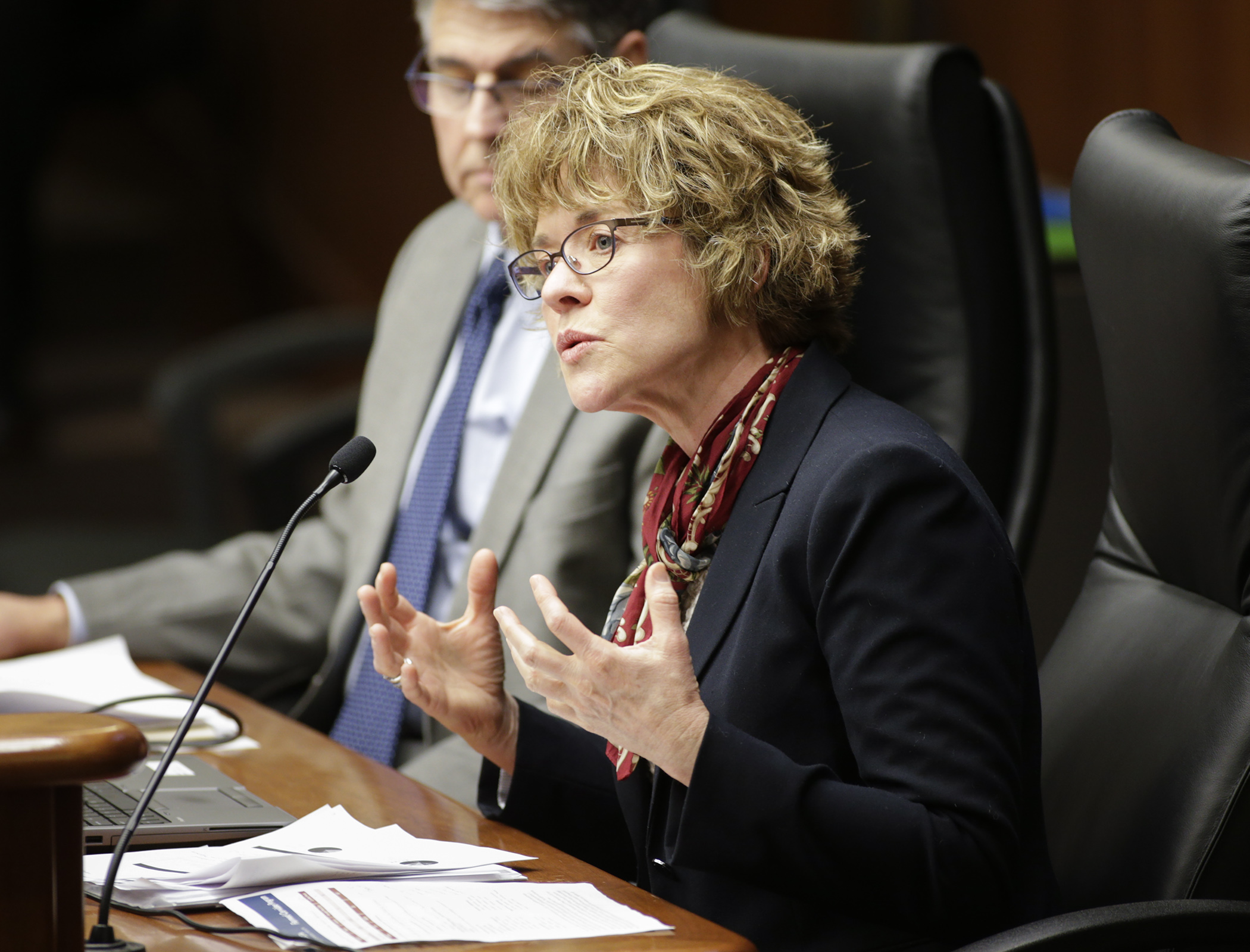Agriculture panel examines state’s response to chronic wasting disease

(CORRECTION: The original post incorrectly stated chronic wasting disease has spread to the state's wild deer population from farmed deer.)
REFILED Jan. 31, 2019: Although the Board of Animal Health is tasked with inspecting, enforcing, and testing laws for farmed cervids, Executive Director Beth Thompson told the House Agriculture and Food Finance and Policy Division Tuesday that full producer compliance with chronic wasting disease testing doesn’t always happen.
State regulations require all dead and slaughtered animals from cervid farms be tested for the disease.
The board reported spending approximately $600,000 annually on regulation of the farmed cervidae program – that includes deer, elk, moose, and reindeer. Of that amount, only around $30,000 is derived from fees charged to cervid farms. The rest is supplied through state appropriations.
Farmers are responsible to report and submit samples from dead animals, and that doesn’t always happen quickly enough to gather samples. Farmers may not find the animal right away or may not notice it missing.
The agency lacks enough staff to monitor fences, Thompson said, so it relies on farmers to keep up fence maintenance and to notify them when it is possible deer may have escaped or wild deer entered.
The agency also receives notices from Department of Natural Resources staff on fencing problems they have observed while in the field.
Rep. Rick Hansen (DFL-South St. Paul) said the DNR is currently spending around $150,000 per infected farm to monitor the wild population around it for chronic wasting disease.
Hansen questioned the effectiveness of the board response.
“In fact, you have set up all of this accommodation of the industry where they aren’t treated the same way as we have treated other livestock,” said Hansen, referencing prior outbreak responses that involved disposing of entire herds in order to contain and eliminate a particular disease.
“We now know … that CWD is transmissible through inanimate objects,” he continued. “…That means the location is a biohazard and we don’t know how long that lasts.”
Thompson said the board does not currently have regulations in place requiring depopulation of herds with confirmed chronic wasting disease cases.
She said there are modifications that could be made to improve disease response, but agency staff cannot determine regulations. Those are determined by board and legislative recommendations.
Rep. Rod Hamilton (R-Mountain Lake) asked if the board is properly equipped to respond to chronic wasting disease or if oversight would be better managed by the DNR.
Thompson said there is room for more staff for monitoring the disease. As to the response being fully assumed by the DNR, she said she would need to understand what that would look like before offering comment.
The board and DNR have entered into a memo of understanding and developed information sharing to better coordinate their responses to chronic wasting disease.
While chronic wasting disease dominated the conversation, Thompson said the agency must prepare for a wide variety of possible disease outbreaks, as well as detect, control and eradicate those that occur.
For example, African swine fever is being carefully watched for by the agency. The disease has spread rapidly in China and lacks treatment or cure. Given the large percentage of swine exported each year, an outbreak would have the potential to deeply limit the state’s swine industry.
License plate bill is approved
The division’s only action in the meeting was to send HF221 to the House Ways and Means Committee with a recommendation it be referred to the House Transportation Finance and Policy Division.
Sponsored by Rep. Jeanne Poppe (DFL-Austin), the bill would create an agriculture license plate. As part of obtaining the plate, a vehicle owner would need to make a $20 annual donation. Proceeds raised would benefit the Minnesota Future Farmers of America Foundation and Minnesota 4-H activities.
The companion, SF250, is sponsored by Sen. Gary Dahms (R-Redwood Falls) and awaits action by the Senate Transportation and Finance Policy Committee.
Related Articles
Search Session Daily
Advanced Search OptionsPriority Dailies
Speaker Emerita Melissa Hortman, husband killed in attack
By HPIS Staff House Speaker Emerita Melissa Hortman (DFL-Brooklyn Park) and her husband, Mark, were fatally shot in their home early Saturday morning.
Gov. Tim Walz announced the news dur...
House Speaker Emerita Melissa Hortman (DFL-Brooklyn Park) and her husband, Mark, were fatally shot in their home early Saturday morning.
Gov. Tim Walz announced the news dur...
Lawmakers deliver budget bills to governor's desk in one-day special session
By Mike Cook About that talk of needing all 21 hours left in a legislative day to complete a special session?
House members were more than up to the challenge Monday. Beginning at 10 a.m...
About that talk of needing all 21 hours left in a legislative day to complete a special session?
House members were more than up to the challenge Monday. Beginning at 10 a.m...